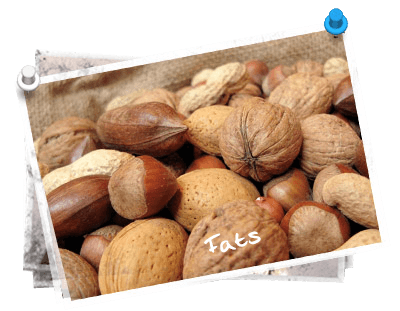Fats are used as a fuel for the body. They are stored in fat cells because the body is “planning ahead” for times when there might not be any food. Calories are a way to measure the amount of energy that food gives the body. Knowing what your body needs is important when making health related decisions, diets are not one size fits all!
Be careful of labels – low-fat, light, fat-free, and reduced fat all mean something different. Fat-free means the food does not have more than 0.5 grams of fat in one serving. Low-fat means there are three grams of fat or fewer in one serving. Light means there is 50 percent less fat than the original version. But sometimes the original version had so much fat that the light version is not even healthy.
As we mentioned before, fats are still an important part of your diet, as long as you’re getting the right kinds. There are vitamins that are crucial in your diet, such as Vitamin A, D, E, and K, which are fat-soluble, meaning they will absorb better when consumed with the right amount of healthy fats!
Some fats are bad!
Saturated fat and trans fat are bad for your health and can increase the risk of heart disease. Saturated fat is found in animal products, such as the fat on meat. Look for lean meats as an alternative! The package of the meat will tell you what percent of your meat is lean and how much is fat. Trans fat is naturally found in dairy and meat but is artificially added to some products. Fried foods and baked goods usually have trans fat.
Other fats are good!
Fats are required to maintain a healthy diet, to some extent. Incorporating foods with unsaturated fat (the ‘healthy fats’) such as avocados, nuts, eggs, fish, yogurt, etc. are beneficial to your health.
